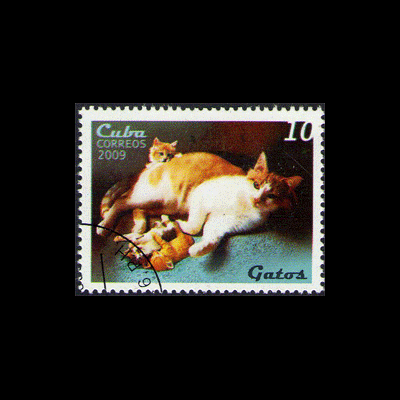
Essentials of nutrition in dogs and cats with gastrointestinal disease
Dietary therapy for cats and dogs with gastrointestinal problems
source: Marge Chandler
In Practice vol 24 no 9, October 2002
starts p528, 5 pages long
Diet is important for cats and dogs with gastrointestinal problems, and sometimes dietary therapy is enough to solve the problem.
Protein deficiencies can be caused by protein not being absorbed properly, and poor quality protein fed to pets. Effects of protein deficiency include weight loss, weakness, and decreased immune function, as well as lower levels of nutrient absorption, and a higher risk of overgrowth of bacteria in the small intestine. Protein sources should be highly digestible if pets suffer from intestinal problems. The average protein digestibility for commercial pets foods is from 78% to 81%, while pets with gastric disease should have a diet with protein digestibility of 87% minimum.
Proteins account for almost all food allergens, and the common allergens vary according to which protein sources are most commonly used in a particular country. Pets with food sensitivity may have gastrointestinal problems, or skin disease, or both. The pet can be fed a protein source not previously eaten. Pets with inflammatory bowel disease may benefit from being fed one novel protein just after treatment has been started, then a
different novel protein once the intestinal inflammation has eased, since the pet may develop sensitivity to the initial protein.
White rice and cottage cheese is very digestible and unlikely to trigger allergic responses. The pet should be given twice as much rice as cottage cheese. Cats may refuse to eat cottage cheese, so boiled minced chicken could be used, so long as the cat has not previously eaten much chicken. Fish, rabbit, lamb or tofu can also be used, so long as the pet has not eaten the particular protein for at least six months. There are also special
commercial pet foods which use hydrolysed protein sources for pets with allergies. Glutamine is an amino acid that pets may need if stressed, and it seems to be more effective if fed as an intact protein, rather than hydrolysed.
Cats and dogs are less likely to be sensitive to carbohydrates, though they should be fed gluten-free, highly digestible carbohydrate sources if they suffer from small intestine and stomach problems. Gluten sensitivity has been noted in Irish setters as well as in some other dog breeds, and in cats. Affected pets may suffer from gas, diarrhoea, and overgrowth of intestinal bacteria. Boiled rice is commonly used, and barley and corn may
be tried. Tapioca and potatoes tend not to be digested as well, especially if not cooked properly. Cats with intestinal disease may have trouble digesting carbohydrates. Extruded dry food for dogs tends to be very digestible. Milk and yoghurt can trigger diarrhoea, since they contain more lactose than cottage cheese, and older dogs in particular may have trouble digesting lactose. Tapioca, bananas and raw potato contain resistant
starches that may cause problems since they are not fully digested. Elimination diets using easily digestible novel proteins and carbohydrates can be used to test for food sensitivities. The pet is started on one novel protein and one carbohydrate source, with small amounts of previously fed foods added to see if any of these trigger problems. Skin problems caused by food sensitivity tend to take longer to clear up than gastrointestinal
problems. Elimination diets should be used with care, since they are not complete, so they are unsuitable for immature pets, and should not be fed for long periods without supplements. Ingredients in commercial foods other than proteins and carbohydrates, such as preservatives, may cause problems for some cats and dogs.
Fibre may provide some benefits such as maintaining colonic motility, but is not recommended for pets with small intestine problems since it may damage small intestines that are inflamed. Diets with more fibre are also less digestible, and pancreatic enzyme activity is impaired by fibre. Fats have a high calorie content, so slow gastric emptying. Pets with gastrointestinal problems may not digest fats well, and this can cause diarrhoea. Dogs with gastrointestinal disease should have between 12% and 15% dry matter basis fat levels, while cats should have between 15% and 22%. Omega-3 fatty acids, found in fish oil and some plant oils like canola and flaxseed oil, may benefit some cats and dogs with intestinal problems. Vitamin loss may result from diarrhoea, which leads to water-soluble
vitamins being excreted at a higher rate, while pets that have problems absorbing fats may suffer from deficiencies in fat-soluble vitamins. Cats need high levels of B vitamins, so are especially at risk. Vomiting and anorexia are among signs of thiamine deficiency in cats. Supplements can be given in intravenous fluids. Vitamin E may help pets with gastrointestinal problems, given at between 10 and 100 iu/kg per day, though prothrombin activity may be impaired if doses of vitamin E are too high. Cats may also suffer from potassium deficiency.
Most pets with gastrointestinal problems should have highly digestible, frequent, small meals with novel or hydrolysed proteins, gluten free carbohydrates, moderate fat restriction, and increased levels of water-soluble vitamins. Pets with colonic disease may also benefit from fibre increases.
CA,HD


